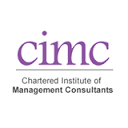Start Date:
20 August, 2025.
End Date:
22 August, 2025.
Effective use of business data, information technology and various analytical methods helps managers and employees gain improved insight into their business issues and helps make better informed decisions. Tools and techniques presented in this programme can be applied across many areas in a wide variety of organizations to improve stakeholder satisfaction, enhance return on investment, mitigate business risks and improve planning. This training course covers the foundational knowledge necessary to collect reliable business data and conduct comprehensive analysis to help maximize organizational value.
Learning Objectives
At the end of this session, participants will be able to:
- Embark on Business data collection, including design of questionnaires
- Engage in Management problem solving and decision making
- Influencing stakeholders through persuasive communication
- Obtain and analyze business information from a wide range of primary and secondary information sources including stakeholder consultations, surveys and research
- Use proven diagnostic and analytical tools to organize, verify, validate and prioritise data
- Apply some simple statistical analysis tools to obtain specific business insights
- Develop and present viable business solutions based on a rational analysis of options
- Use tried and tested approach for persuasive and influential presentation of business information
Course Contents
DAY 1
- Introduction and key concepts
- Fundamentals of business decision making
- Decision process and critical thinking
- Data, information, knowledge
- Fact, statistic, rumor, fiction
- Understanding business problems / opportunities
- Recognizing business problems
- Formulation of objectives
- Problem definition
- Recognizing and formulation of assumptions, priorities and constraints
DAY 2
- Collecting relevant evidence
- Data for decision making; uses of business research
- Business research process
- Research purpose, objectives and value
- Research design
- Data sources
- Sampling
- Research proposal
- Gathering and organizing relevant data
- Surveys / questionnaires: asking the right questions
- Asking the questions right
Day 3
- Data verification and validation
- Types of business data
- Data reliability and validity
- Decision models and basic spreadsheets
- Visualizing and exploring data
- Data analysis: analyzing information, basic business statistics and tools
- Charts and frequency distributions
- Pivot tables
- Descriptive statistics
- Descriptive analysis
- Using the measures of central tendency and variability in business decisions
Day 4
- Probability distributions and data modeling
- Probability in management decisions
- Statistical decision theory
- Simple business applications of probability distributions
- Business data analysis
- Measures of association in business: correlation and regression analysis
- Popular diagnostic and analytical models
- Fundamentals of option analysis
- Choice heuristics
- Payoff tables and decisions under certainty, risk and uncertainty
- Decision trees and utility theory
Day 5
- Effective business communication to persuade and influence
- A framework for persuasive communication: AIM-FOCUS
- The importance of AIM
- The need to FOCUS your message
- Writing convincing reports
- The art of influence through business presentations








